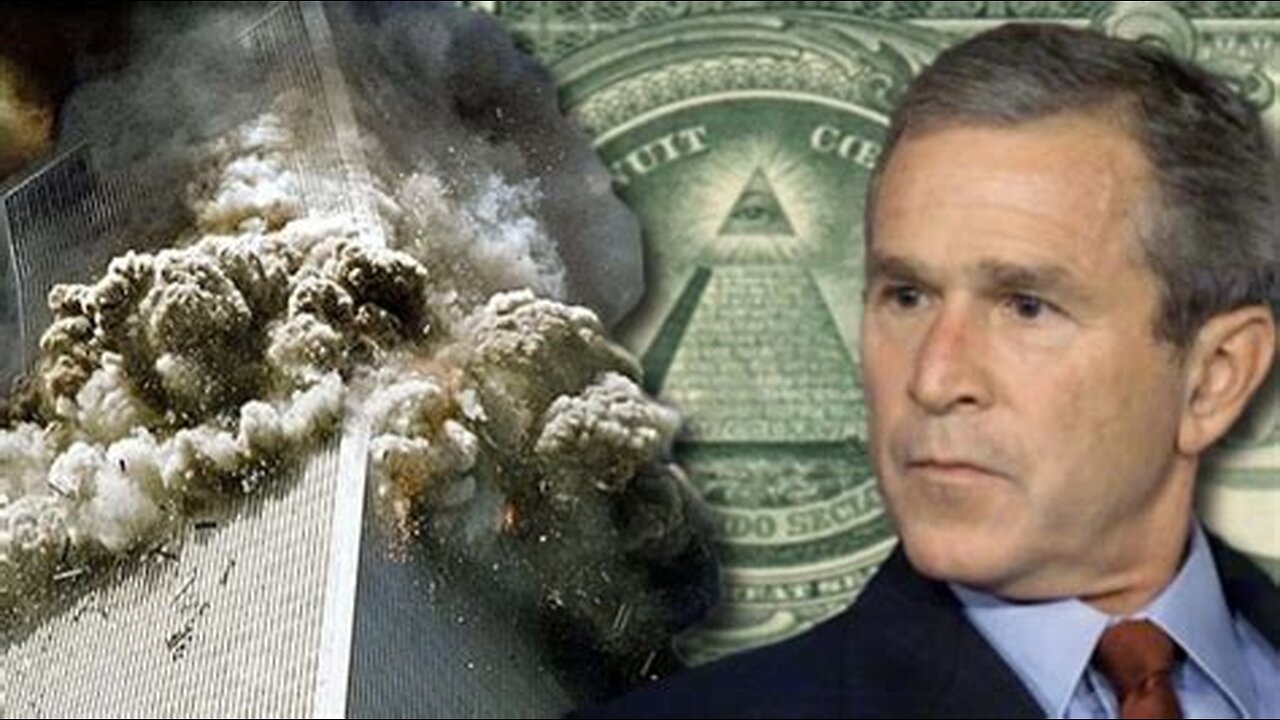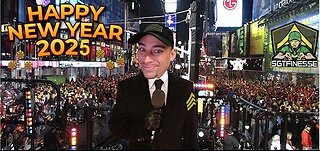Premium Only Content

Revisiting History: A Critical Examination of Major Events and Hidden Agendas
Throughout history, pivotal moments have shaped the trajectory of nations and the lives of millions. But beneath the official narratives, there lies a darker, more complex reality. When we examine these events through a lens of skepticism and inquiry, patterns of manipulation and hidden agendas emerge. From political assassinations to large-scale tragedies, the question persists: Who truly benefits, and to what end?
The Assassination of Martin Luther King Jr.: A Silenced Voice
Dr. Martin Luther King Jr., a beacon of civil rights and peace, was seen by many as a dangerous threat to the status quo. Official accounts attribute his assassination to a lone gunman, James Earl Ray, but deeper investigations suggest a more sinister backdrop.
• FBI Surveillance: King was under constant surveillance by the FBI, with Director J. Edgar Hoover labeling him a “dangerous communist.” Churches where King spoke were bugged, and his personal life was scrutinized in attempts to discredit him.
• Government Involvement: The King family and some historians argue that King’s growing influence, particularly his opposition to the Vietnam War and advocacy for economic justice, made him a target for elimination. The 1999 Memphis civil trial even found “governmental agencies” complicit in his death, though this has been largely ignored by mainstream narratives.
The JFK Assassination: A Coup in Broad Daylight
John F. Kennedy’s assassination remains one of the most scrutinized events in American history. While Lee Harvey Oswald is officially credited as the lone assassin, countless inconsistencies in the evidence suggest a broader conspiracy.
• CIA and Mafia Connections: The CIA’s alleged collaboration with mafia figures during the Cold War provides a plausible link. Kennedy’s crackdown on organized crime and his perceived betrayal during the Bay of Pigs invasion might have sealed his fate.
• Lyndon B. Johnson’s Role: Johnson, who succeeded Kennedy, is often implicated by critics who point to his close ties with Texas oil magnates and his ambition to ascend to the presidency. His presence in Dallas during the assassination remains a subject of speculation.
Pearl Harbor: The Foreseen Tragedy
The attack on Pearl Harbor in 1941 brought the United States into World War II. While the official story paints the event as a surprise attack by Japan, declassified documents and firsthand accounts suggest otherwise.
• Advanced Warnings: Multiple sources indicate that U.S. intelligence had prior knowledge of the attack, including the location and timing. The commander of the Pacific Fleet, Admiral Kimmel, later stated that critical intelligence had been withheld.
• A Calculated Sacrifice: Allowing the attack to proceed created a rallying cry for war, overcoming widespread isolationist sentiment in the U.S. The resulting entry into the conflict solidified America’s role as a global superpower.
9/11: A Tragedy with Layers of Deception
The September 11 attacks remain etched in the collective memory as one of the most devastating events in U.S. history. While the official narrative attributes the attacks to 19 al-Qaeda operatives, significant evidence raises questions about the true origins and motives.
• Pilots’ Testimonies: Experienced pilots have stated that the maneuvers performed during the attacks were beyond the capabilities of amateur pilots, casting doubt on the narrative of hijackers alone executing the plan.
• Tower 7 and Controlled Demolition: Building 7’s collapse, which was not hit by a plane, remains a focal point for skeptics. Structural engineers have pointed to evidence consistent with controlled demolition, challenging the official explanation of structural failure due to fire.
• The Saudi Connection: The 28 pages redacted from the 9/11 Commission Report highlight potential Saudi involvement. The refusal to release this information during George W. Bush’s presidency raises questions about deeper alliances and motives.
• The Patriot Act’s Rapid Emergence: The aftermath of 9/11 saw the swift passage of the Patriot Act, granting sweeping surveillance powers to federal agencies. Critics argue that the legislation’s timing and content suggest premeditation, leveraging the tragedy to erode constitutional freedoms.
A Pattern of Exploitation: Cui Bono?
The recurring theme in these events is the exploitation of tragedy for power consolidation and policy shifts. From Pearl Harbor to 9/11, the beneficiaries often include:
• Military-Industrial Complex: War and conflict lead to massive defense spending, benefiting defense contractors and perpetuating cycles of violence.
• Surveillance State: Expanded government powers, justified by national security concerns, often infringe on civil liberties, normalizing intrusive practices.
• Political Agendas: Leaders and institutions use crises to implement policies that would otherwise face public resistance, such as mass surveillance, foreign interventions, or economic bailouts.
The Human Cost of Hidden Agendas
What unites these events is the disregard for human life in pursuit of broader objectives. Whether it’s the lives lost in wars, political assassinations, or terrorist attacks, the individuals involved become pawns in a larger game.
• Sacrificing the Few for the Many?: The justifications often hinge on the idea of protecting national interests or greater good, but at what moral cost?
• Apathy Toward Accountability: The lack of transparency and accountability in these events fosters a culture of mistrust, where power operates in the shadows.
Reflections and Lessons
As we revisit these historical moments, we must ask critical questions:
• What are the limits of power? How far should governments go in pursuing their objectives, and who decides?
• Can transparency coexist with security? Balancing openness and national security is essential to prevent abuses of power.
• What role do we play? An informed and engaged public is crucial in holding institutions accountable and preventing history from repeating itself.
Conclusion: A Call for Vigilance
The events discussed—Martin Luther King Jr.’s assassination, JFK’s murder, Pearl Harbor, and 9/11—reveal a troubling pattern of power dynamics that shape our world in ways we may never fully understand. While official narratives offer closure, the deeper truths often lie buried beneath layers of secrecy and manipulation.
By critically examining these events, we honor the lives lost not as pawns but as individuals whose stories demand justice and truth. History, after all, is not just a record of the past but a guide for the future. Let it remind us to question, to seek, and to hold power accountable.
-
 2:13:05
2:13:05
The Nerd Realm
16 hours ago $7.45 earnedNew Years Eve! Fortnite Hunters w/ YOU! Creator Code: NERDREALM
73.1K5 -
 11:04:44
11:04:44
FusedAegisTV
1 day agoNYE Eve! - 2025 Incoming 🎉 - 12hr Variety Stream!
136K7 -
 1:18:52
1:18:52
Awaken With JP
19 hours agoSomehow The World DIDN’T End This Year! - LIES Ep 72
170K93 -
 1:19:34
1:19:34
Michael Franzese
17 hours agoWhat 2024 Taught Us About the Future?
135K33 -
 1:48:09
1:48:09
The Quartering
17 hours agoBird Flu PANIC, Sam Hyde DESTROYS Elon Musk & Patrick Bet David & Woke Witcher?
140K81 -
 4:47
4:47
SLS - Street League Skateboarding
3 days agoLiz Akama’s 2nd Place Finish at SLS Tokyo 2024 | Best Tricks
63K6 -
 4:06:54
4:06:54
LumpyPotatoX2
16 hours agoHappy New Year Rumble ! - #RumbleGaming
45.9K1 -
 10:37
10:37
One Bite Pizza Reviews
1 day agoBest of Barstool Pizza Reviews 2024
70.6K33 -
 2:37
2:37
Tate Speech by Andrew Tate
18 hours ago2025 WILL BE YOUR YEAR
121K45 -
 3:51:31
3:51:31
Sgtfinesse
19 hours agoRumble New Years Eve with Sarge
69.7K